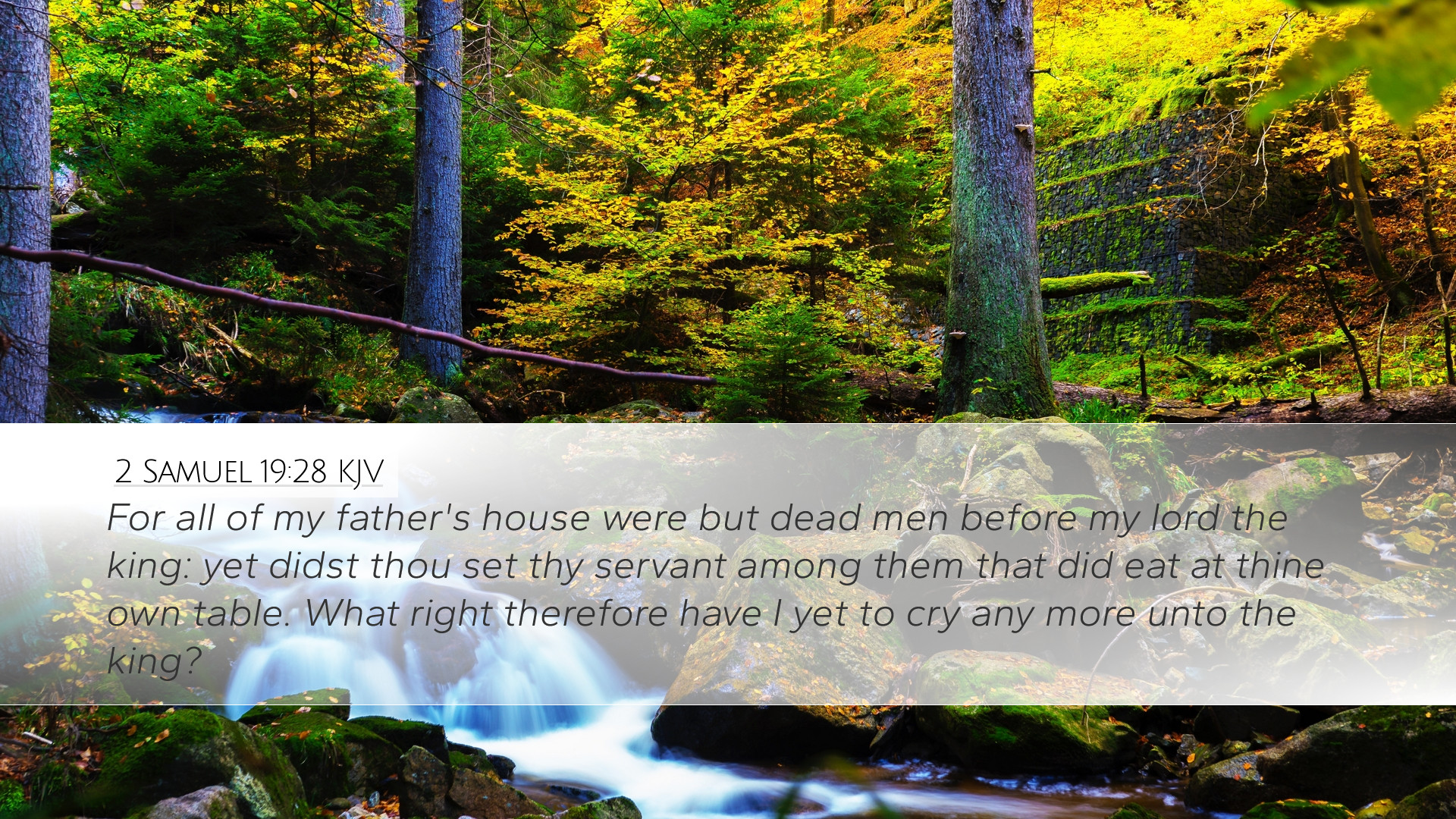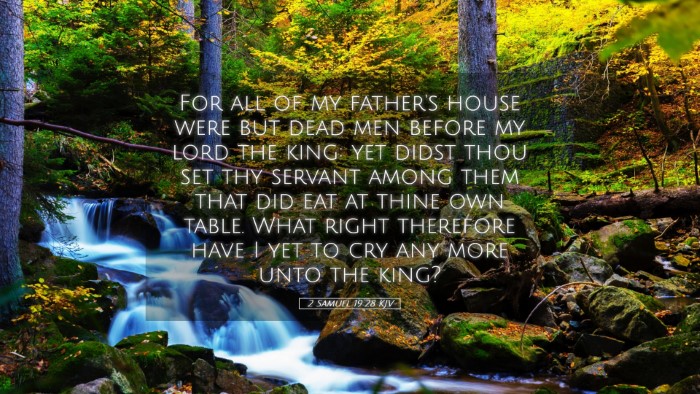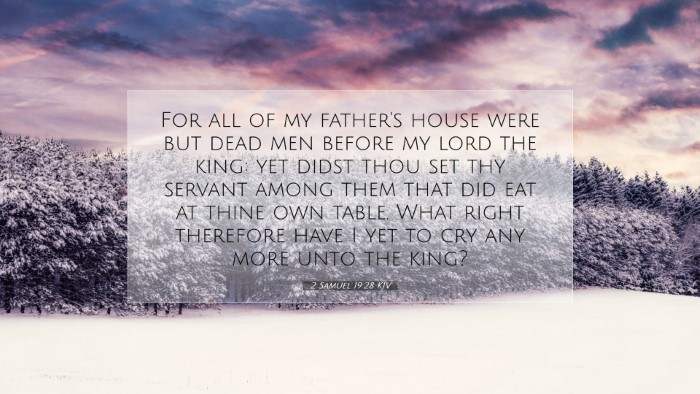Commentary on 2 Samuel 19:28
2 Samuel 19:28 states: "For all of my father's house were but dead men before thee: yet didst thou set thy servant among them that did eat at thine own table. What right therefore have I yet to cry any more unto the king?" This verse, spoken by Mephibosheth, the son of Jonathan and grandson of Saul, reflects a profound understanding of grace and mercy in the face of despair.
Analysis and Insights
This verse serves as a poignant moment of self-reflection and gratitude from Mephibosheth, showcasing the themes of loyalty, grace, and mercy that run throughout the narrative of David's reign.
Contextual Background
To fully appreciate this verse, one must consider the broader narrative surrounding Mephibosheth. After the death of King Saul, Mephibosheth was left in a vulnerable position due to the fallout between the house of Saul and David. Fleeing from the perceived threats, he was disabled and reliant on others for support. Yet, despite the historical antagonism between their houses, David shows remarkable compassion by restoring Mephibosheth's lands and inviting him to dine at royal tables. This act of kindness is at the heart of Mephibosheth's lament in this scripture.
- Mephibosheth's Condition: Mephibosheth’s physical state (he was crippled) symbolizes man's spiritual disability without grace.
- The Significance of David’s Table: Being invited to eat at the king's table is a metaphor for inclusion, acceptance, and the bestowal of honor despite one's past affiliations.
- The Theme of Grace: Mephibosheth’s acknowledgment that he is unworthy to call upon the king exemplifies the grace he has received, contrasting with the justice he could have expected.
Commentary Insights
Matthew Henry
Matthew Henry notes that Mephibosheth's statement reveals a deep awareness of the mercy extended towards him. He remarks on the great contrast between Mephibosheth's previous status as a potential enemy of King David and his current privileged position at the king's table. Henry emphasizes that this illustrates God's favor, shown to those who do not deserve it, serving as a lesson that believers must continually recognize and cherish.
Albert Barnes
Albert Barnes comments on the spiritual implications of this verse. He points out that Mephibosheth serves as a type of Christ, embodying those who are unworthy yet are recipients of divine grace. Barnes suggests that the phrase "what right therefore have I yet to cry any more unto the king?" reflects a heart of humility and recognition of God's sovereignty in bestowing grace. This commentary encourages readers to examine their own positions and the grace they have received, reinforcing the idea of quiet acceptance and thankfulness in faith.
Adam Clarke
Adam Clarke provides additional historical context regarding the rivalry between David and the house of Saul. He regards Mephibosheth as an emblem of all who rely on God's grace rather than their merit. Clarke also notes the significance of dining with the king: it reflects friendship and reconciliation, an image of peace that transcended the enmity of the past. His attention to service and reverence towards David reinforces the essence of servanthood in the life of a believer.
Theological Reflections
The theological themes encapsulated within 2 Samuel 19:28 resonate deeply for pastors and theologians alike. The notions of humility, grace, and acceptance mirror the Gospel message, where believers are offered a place at God's table through Christ, despite being undeserving sinners. Each commentary contributes to a more profound understanding of how grace operates—inviting examination of one's own heart condition and gratitude for divine mercy.
Practical Applications
- Humility: Believers must reflect on their standing before God, recognizing that any privilege in the Kingdom is by grace alone.
- Gratitude: Regularly express gratitude for the grace shown in one's life, modeling Mephibosheth's response to God's mercy.
- Service: Adopt a posture of service, understanding that those at the king’s table are called to reach out to others in need, particularly the vulnerable and marginalized.
Conclusion
Ultimately, 2 Samuel 19:28 invites believers to reflect on the unmerited favor of God, emphasizing that despite our shortcomings, we are welcomed into fellowship with our King. The insights from the public domain commentaries encourage a deeper understanding of grace, continuing to challenge our perceptions of worthiness and service in the life of faith. Such reflections not only enrich personal faith but also serve as a powerful message to share with others within the community of believers.


